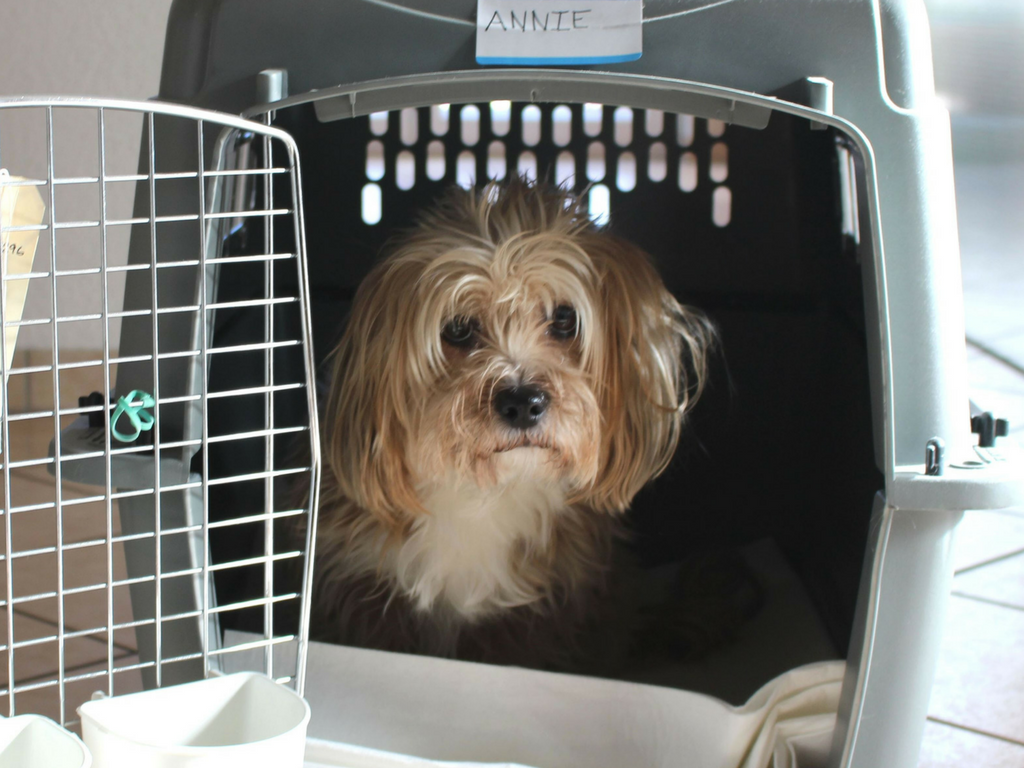All you need to know about international pet transport to France
France has the reputation of being one of the most pet-friendly countries in the world. You can bring your pet to many restaurants and cafés, markets and tourist sites.
International pet transportation doesn’t have to be complicated when you partner with an experienced pet moving company. We’ll help you move your pet safely without stress. If you’re planning to move your pet dog or cat to France, here’s what you should know about international pet shipping to the country.
Banned breeds in France
France bans the entry of dangerous and aggressive dog breeds into the country prohibited dog breeds are:
- Staffordshire Terriers
- American Staffordshire Terrier
- Japanese Tosa
- Mastiff (Boerbull)
If your pet is one of these breeds, you will need a certificate of birth or pedigree issued by the veterinary authority in the dog’s country of origin. The certificate must attest that the International Canine Federation recognises the dog’s pedigree

Pet quarantine in France
Your pet dog or cat will not be quarantined upon arrival in France if all the pet import regulations are met. However, if all the import criteria are not met, your pet may be detained for further tests and examination at your expense.
A licensed official will examine all pets upon entry for signs of illness and any infectious disease. If your cat or dog is not in good health, they will be examined further before they can enter the country.
Pet transport of puppies and kittens to France
Puppies and kittens less than three months of age and not vaccinated against rabies are not allowed to enter France. Puppies and kittens from non-listed countries can travel to France only after they are seven months old after their rabies vaccination and rabies titre test.

Why do some countries have pet quarantines?
Pet quarantines help prevent the spread of dangerous diseases that dogs and cats sometimes carry. Our pets harbour microorganisms that can cause multiple diseases that affect other animals and zoonotic diseases that can affect people. Vaccinations play an important role in international pet travel to prevent the spread of these diseases. Some countries have an added layer of protection to prevent the introduction of exotic disease-causing microorganisms by ensuring the pet is quarantined after they enter the country.
During their stay in the quarantine centre, pet cats and dogs are assessed for any illnesses and checked if they are in good health. Not all countries have mandatory quarantine; most countries, including member countries of the European Union, ask your pet to be quarantined only if all pet import regulations are not met upon entry.

Pet quarantine for international pet transport to France
For your pet to enter France, you must make sure your pet has followed all pet import rules accurately. Your pet dog or cat must be microchipped and vaccinated. If your pet is travelling to France from an EU member country or a third country with a low incidence of rabies, they need a rabies shot at least 21 days before the date of travel.
However, pet dogs and cats flying from non-listed countries will need a rabies titre test (RNATT) at least 30 days after receiving their rabies vaccination. The rabies titre test measures the antibody response to check if the rabies vaccination is effective. Pets have to wait for three months from the date of sampling before they can enter France. Only pets with antibody levels of 0.5 IU/ml are allowed to travel to France.
Pets that fulfil all the above requirements can enter France without quarantine. However, pets that fail to comply with the pet import regulations will be placed in quarantine or sent back to the country of origin.
If you are planning a trip to France with your pet dog or cat, contact ASIAPATA for more information on pet-friendly transportation and free pet quotes.
Read more articles at :
- Transporting Vietnamese Pets to Singapore
- International Pet Transport from Noi Bai to Liverpool
- Vận Chuyển, Gửi Hành Lý Cá Nhân Đi Nước Ngoài Từ Việt Nam














